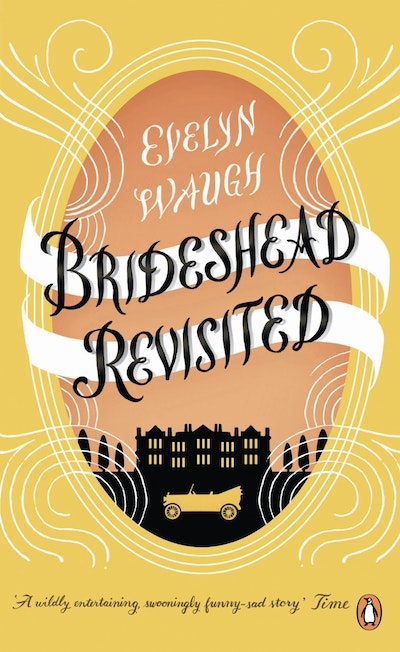
Charles comments that "all over the world people were on their knees before innumerable crosses, and here the drama was being played again by two men – by one man, rather, and he nearer death than life the universal drama in which there is only one actor." Fortunately for you, this leads right into the last big important passage in Brideshead Revisited, at the heart of the novel’s conclusion: Something quite remote from anything the builders intended has come out of their work, and out of the fierce little human tragedy in which I played something none of us thought about at the time: a small red flame – a beaten-copper lamp of deplorable design, relit before the beaten-copper doors of a tabernacle the flame which the old knights saw from their tombs, which they saw put out that flame burns again for other soldiers, far from home, farther, in heart, than Acre or Jerusalem.

It’s also the first place where this odd "actors in a universal tragedy" motif comes up. It has its roots in Lord Marchmain’s death scene, when Charles watches the old man and "suddenly the longing for a sign, if only of courtesy, if only for the sake of the woman love, who praying for a sign." To Charles, "it seem so small a thing that was asked, the bare acknowledgment of a present, a nod in the crowd." This is where Charles first drops his anti-religion stance and begins to suspect the presence of a God. Despite appearances, this conversion doesn’t come out of the clear blue sky. We know that Charles was raised in religion ("I was taken to church weekly as a child" he earlier confessed), so his newfound Catholicism is actually a return to God. This is the twitch upon the thread we’ve been waiting for. Charles enters the chapel and "sa a prayer, an ancient, newly learned form of words." The "newly learned" bit is our second clue and confirms that Charles has in fact recently converted. (We know, it’s subtle, but it’s there.) The second comes in the epilogue, and is part of this big ending we’re trying to talk about here. More in your line than mine." "R.C." means "Roman Catholic," and Hooper’s comment that it’s "more in line than " is the clue we’re talking about.

I looked in and there was a kind of service going on – just a padre and one old man. The first hint actually comes in the prologue, when an army man named Hooper tells Charles of their new lodgings at Brideshead: "There's a sort of R.C. Did you notice? If not, don’t worry, because we only get two small clues that Charles has converted by the time he’s in the army in the 1940s.


 0 kommentar(er)
0 kommentar(er)
